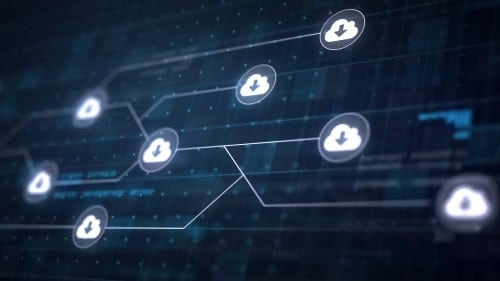Waste & material traceability solution for sustainable facilities

Simply, data is another word for information. But in computing and business, data refers to information that is machine-readable, not human-readable. No matter which industry you work in, or whatever your interests, you will definitely have come across a story about how “data” is changing the face of our world. It might be part of a study helping to cure a disease, make a building more efficient, boost a company’s revenue, or be responsible for those targeted ads you keep seeing.
Human-readable refers to information that only humans can study and interpret, such as the meaning of a block of text or an image. So simply, if the information requires a person to interpret it, that is human-readable. Machine-readable refers to information that computer programs can process. When we take data and apply it to a set of programs, we get the software. A program must have some kind of uniform structure to perform instructions on data.

Improving quality is first and prime among the reasons why organizations should be using data. By allowing you to take action and measure, an effective data system can enable your organization to improve the quality of people’s lives. Data means knowledge. Good data provide evidence without dispute, while anecdotal evidence, abstract observation, or assumptions might lead to wasted resources due to taking action based on a wrong conclusion. It helps to identify your high-performers, you can study them to develop strategies to assist programs, service areas, and low-performing people. Organizations can respond to challenges before they become a full-blown crisis by utilizing data for quality monitoring.
Data allows organizations to:
In a nutshell, data is useful information that you collect to support organizational decision-making and strategy
Ever since we have first appeared on this planet, humans have been producing waste. At the start of the 21st-century most world’s waste is still treated as it always has been, just thrown away more often and not, ending up as a landfill. But with the new technology and approaches, it’s not that difficult anymore to handle our waste anymore. Many methods of municipal solid waste management have been developed and many of them have potentially significant negative impacts. For example, a sensor deployed on top of the trash bin (which we call smart bin now) can be used to get the capacity information of the trash bin. The data collected can be sent to the Cloud resulting in a major quantity of data from thousands of Sensors.
One way companies can become more sustainable is by reducing the amount of producing waste created during product development. Data can help here by increasing efficiency and cataloging ways that packaging materials can be reduced without damaging products. This can help to cut down on material usage remarkably, and could even save companies money in the long run.
With the development, smart cities are growing with dizzying speed. The technologies and concepts to support this development are new for most municipalities and waste management companies, or relatively new. Many methods of municipal solid waste management have been developed and many of them have potentially significant adverse impacts.